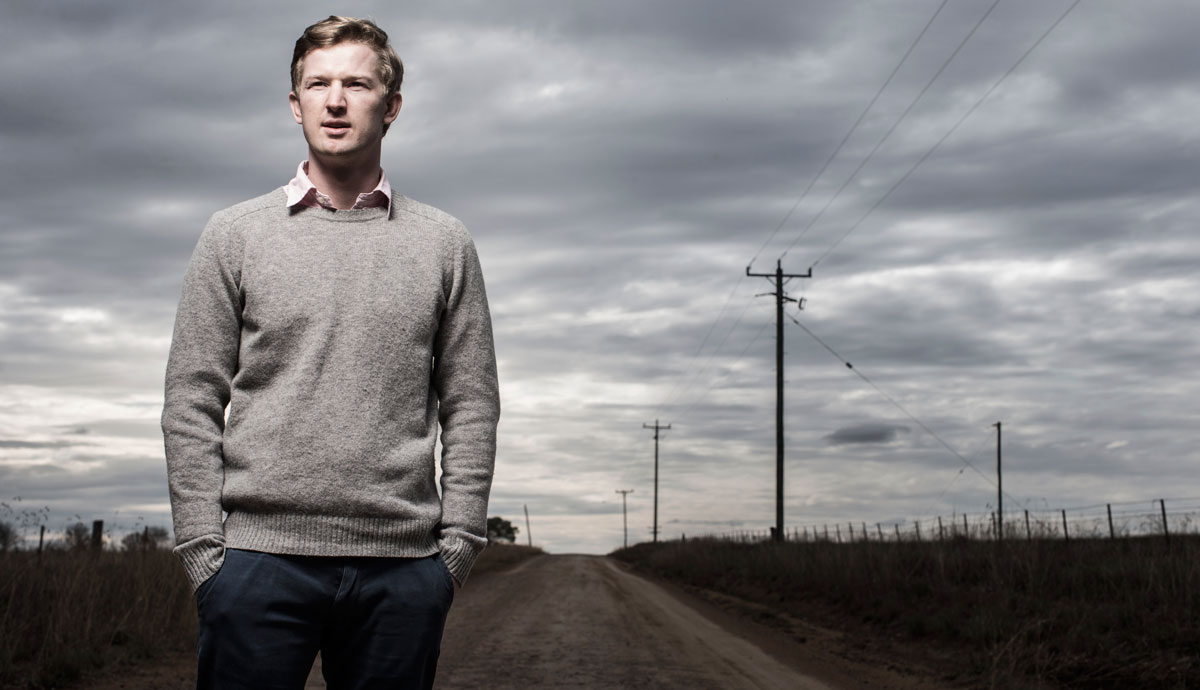February 1, 2018
Graduate Medicine focused on training next generation of rural doctors
UOW welcomes recommendations to improve access to health care in regional communities
The University of Wollongong’s graduate medical program is focused on training the next generation of doctors to live and work in regional and rural areas, where access to patient care is often affected by the tyranny of distance.
Now, the Australian Medical Association (AMA) has welcomed UOW’s approach as the best way to ensure that regional and rural communities are not left behind when it comes to accessing health care and building a rural medical workforce for the future.
In a five-point plan released in January, the AMA outlined a series of initiatives to increase the number of doctors who practice outside of the city.
One of key recommendations, that medical schools lift their target of students undertaking one year of training in a rural setting from 25 per cent to 33 per cent, has been far exceeded at UOW’s graduate medical program since its inception.
Between 70 and 80 per cent of UOW medical students spend one year training in rural communities, an experience that helps graduates prepare for the myriad challenges they will face on a daily basis if they choose to practice in these regions.
Associate Professor David Garne, Director of Community, Primary, Remote and Rural at UOW’s School of Medicine, said the training teaches students resilience and provides a deep immersion in the community.
“We lay the foundation for students to work in any field of medicine and any setting they choose, but we try to show them that working rurally is very rewarding and it can be a pleasant, productive and fulfilling lifestyle,” Professor Garne said.
“There’s payoff in longer placements for the clinical supervisors as well. It takes time and effort for local staff to get new students oriented and up to speed with what’s expected in a rural practice. It gives them a sense that if the student enjoys their stay, there’s a much greater chance they’re going to come back once they’ve finished training and become part of the workforce. So the investment they make is worthwhile, and we have already seen a number of our graduates return to communities and practices where they spent time as students.”
The UOW graduate medical program is rurally focused, and the students know what they are signing up for when they enrol. One of the key recommendations from the AMA is that one third of all medical students comes from a rural background. At UOW, this number is doubled, with two thirds of students from rural backgrounds, the highest proportion in the state.
“We give a positive weighting to applicants with a rural background,” said Professor Garne, who himself spent seven years working with the Royal Flying Doctor Service in Broken Hill.
Dr Hugh Stump, who studied medicine at UOW, spent a year in Mudgee as part of his training, working with local clinicians to provide care to the community. It was an “amazing experience” for the young doctor, who grew up on a farm in north-west NSW, an hour out of Walgett.
“That rural focus was one of the reasons I came to UOW to study,” Dr Stump said. “When I was growing up, it was an hour to get to the nearest hospital, so there is that health inequality that you appreciate coming from a rural area.
“In Mudgee, I got to spend time with an amazing team of GPs, who were all passionate about providing rural medicine to a community that would otherwise not have been able to access it. Spending a year there really enabled me to get involved in the community, and provide continuity of care to the patients.
“In some cases, I was able to be with a mother when she got those first tests confirming a pregnancy, right up to performing the first checks on the baby.”
Continuity of clinical supervision and of patient care are key ingredients of the longitudinal immersion program used by the UOW program, and Dr Stump’s experiences are an outstanding illustration of this.
Dr Stump is currently undertaking the NSW Rural Generalist Training Program, specialising in general practice and anaesthetics, with the aim of moving back to a rural community next year.
“I’m hoping for a community similar to Mudgee, but I would love to be able to use my training to undertake remote work in Indigenous communities as well.”
Dr Hugh Stump, pictured in Mudgee, where he completed a year of training while studying medicine at UOW. Photo: Paul Jones
